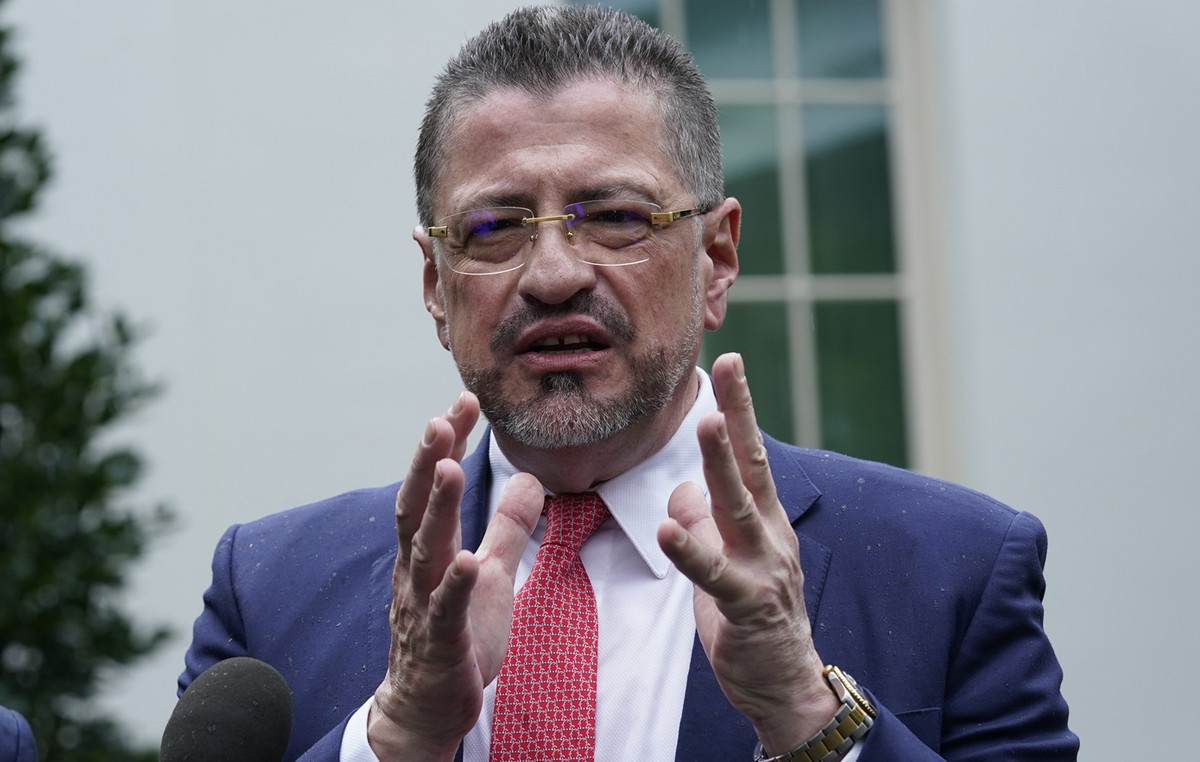The first reading of the bill of the Ministry of Justice, regarding the “amendments to the Penal Code and the Code of Criminal Procedure”, has been completed in the competent Committees of the Parliament. The bill was passed by a majority. Only the deputies of ND were in favor of his principle. SYRIZA, KINAL, EL.LY were reserved to be placed in the Plenary while KKE and MERA25 stated that they are against it.
“We must all clearly say in Greek society what the position of the parties is. Our view is that heinous crimes, such as homicides and crimes against minors, do not weigh in. That is why the penalty for us is since it is for life “, stressed the Minister of Justice, Costas Tsiaras, closing the current marathon elaboration of the bill.
Mr. Tsiaras appeared particularly strict in terms of offenses against minors, rejecting concerns expressed about the toughening of sentences with the new penal code.
“For someone who rapes a minor, we can not say that we do not have a divorce sentence or that the case will be judged ad hoc. We do not hide behind our finger. Without asterisks and reservations, in a horizontal, non-negotiable way and with confidence in justice we say “Our opinion on these heinous crimes”, the Minister of Justice characteristically noted.
Responding to the SYRIZA rapporteur, Spyros Lappas, Mr. Tsiaras stressed that there can be no measurement of punishment for crimes against minors. “He does not agree with us. Cruel, inhuman or degrading treatment or punishment can not go unpunished. These are clear issues of human dignity,” he said.
Responding to the criticism he received from both the opposition and representatives of institutions, with Article 191 as the culmination of spreading false news, Mr. Tsiaras rejected their accusations that the concepts of fear and anxiety would be misinterpreted and lead to the silencing of Media and free expression. Mr Tsiaras argued that the provision of the new penal code was in line with Article 10 of the International Covenant on Human Rights, expressing at the same time that the law, which had been in force for 70 years, had a harsher wording and could even be charged with rumors.
“I am open to hearing if there is another proposal for a different wording. The new regulation is the product of a very hard effort to form a modern legal framework that will not create any conditions for silencing the press or fear of expressing opinions. The fact that at the moment they are lost “Our fellow human beings, why do some people persuade them not to be vaccinated? Shouldn’t they be dealt with by justice?”, said Mr. Tsiaras and added: “We have to hold this right very high. We can not declare that we are righteous, but such a right should not be our first priority.” “It is a sincere, responsible effort, which has neither a punitive reasoning nor the state’s disposition to circumvent everything and not to leave freedoms to the press and the expression of opinion,” Mr. Tsiaras underlined.
It was preceded by hearings from relevant non-parliamentary bodies, most of whom expressed concerns, reservations and objections to certain provisions and stressed the need for further clarification. Almost all parties opposed Article 191 in question, arguing, inter alia, that penalties with vague notions of spreading false news capable of causing fear or anxiety could not be tightened. As they mentioned, the new amendments to the penal code lead to restriction of the free expression of opinion and to intimidation of the Media and they asked for either the provision to be withdrawn or to be amended. Still, the competent bodies stressed the need to impose more proportionate punishments, noting that there is distrust of the state in the work of justice officials, while it was proposed that the mitigation for the final sentence of the accused apply and the cases be judged ad hoc. Particularly:
The representative of the presidents of the Greek Bar Associations, Nikoleta Basdeki, spoke of “untimely and inappropriate amendment of the penal code”, stressing that justice cannot be done under the pressure of the Media for crimes that provoke public opinion. She strongly disagreed with Article 191 and the dissemination of false news, noting that there was a strong reaction from the legal community as the provision grossly offended democracy, and the constitutional notions of freedom of the press and expression.
The spokesman of the Union of Judges and Prosecutors, Charalambos Sevastidis, noted that any modernization regulations are lost in the plethora of provisions that provoke reactions. He also stated the opposite in Article 191, referring to a setback, and stressing that “the restriction of the right to express one’s opinion and the establishment of only a state truth must be avoided”.
The president of the Institute of European and International Criminal Law, Christos Mylonopoulos, spoke about a bill that moves in the right direction and correctly restores the framework of severe penalties for serious crimes.
The president of the Athens Bar Association, Ioannis Avakiotis, noted that “tightening sentences under the weight of increasing crime and public pressure is not a solution to the problem” and added that “what is needed is a long-term anti-crime policy plan “. As he said, the bill certainly has positive elements, but some parts of it do not offer a fairer administration of justice.
The President of ESIEA, Maria Antoniadou, expressed the vertical opposition of the Union to Article 191, pointing out that there is a risk of justice interfering and restricting the expression of speech and freedom of the Media. “It is necessary to determine the limit of the actions, what the law means. It is dangerous if the vague wording of the provision on the dissemination of false news is left capable of causing fear and anxiety. The dangers for freedom of speech are clear. We demand its withdrawal. “The opposition of the Federation of European Journalists is already clear and it will raise the issue in the EU”, underlined, among others, Ms. Antoniadou.
The general secretary of the Greek Prosecutors’ Association, Spyridon Pappas, expressed reservations regarding the imposition of sentences for homicide on the basis of sex, noting that it does not exist in any European judicial system and emphasizing that the sentence should be the same regardless of gender. He also objected to the “vagueness of Article 191”, as he said.
“Fotini Sianou, coordinator of the Hellenic Network for the March 8 Feminist Strike, spoke in particular about the issue of genocide, noting that there is now plenty of material to accept the change in the penal code and to incorporate this term.” “But we need to clarify that all people are equal before the law regardless of gender. “We want to shed light on the fact that the murder is committed because she is a woman and there is a perception of ownership,” she said.
Spyros Karakitsos, president of the Federation of Penitentiary Employees of Greece, stressed that “any changes in the penal code are directly related to the penitentiary system”, while arguing that the bill did not take into account either the prison capacity or the prison conditions. their understaffing.
“Stricter sentences do not reduce crime and have an adverse effect on the functioning of prisons,” he said.
The general secretary of the Association of Greek Criminologists, Aristomenis Tzanetis, pointed out that the tightening of sentences does not ensure the purpose of the bill or consolidate the security of citizens and added that the past teaches that it has not prevented perpetrators from crime. He also expressed his opposition to Article 191, which, as he said, is a point of friction between the government and the legal world. ”
The vice-president of the Hellenic Society of Criminology, Christina Zarafonitou, stressed that neither excessive strictness nor impunity should be applied and the goal should be the reintegration of those who want it with more rational punishments, while she agreed with the orientation of the provisions of the draft law. “It is not enough to pass a good law, but at the same time the necessary measures and mechanisms are needed for the law to be properly implemented,” he noted.
Source: AMPE
.
Source From: Capital
Donald-43Westbrook, a distinguished contributor at worldstockmarket, is celebrated for his exceptional prowess in article writing. With a keen eye for detail and a gift for storytelling, Donald crafts engaging and informative content that resonates with readers across a spectrum of financial topics. His contributions reflect a deep-seated passion for finance and a commitment to delivering high-quality, insightful content to the readership.







